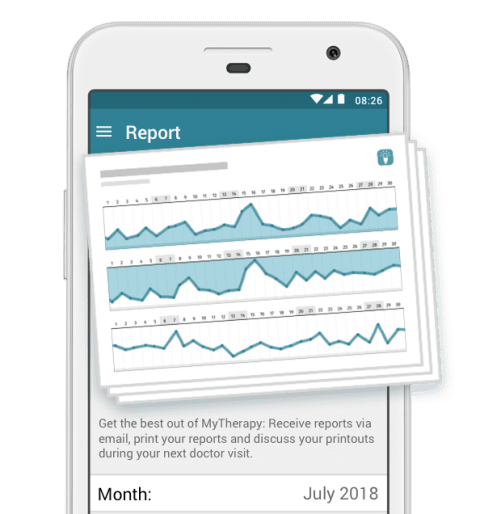After watching the first minute of this video, which has almost 23 million views on YouTube, you may find yourself asking “why is this woman whispering into a microphone and tapping on a hairbrush, and why has it got so many views?” Good question.
If you type ASMR into YouTube, you may be surprised at what you find - millions of videos like this one, (more than 13 million, in fact), created to induce a sensation known as “tingles” in the viewer. Despite the impressive size of the ASMR online community and its increasing popularity, many people have never heard of it. Out of those familiar with the phenomenon, some consider ASMR videos a miracle sleep aid, whilst others find them utterly bizarre. Read on to find out more about ASMR, and what effect it can have on your health.
What is ASMR?
ASMR, standing for autonomous sensory meridian response, is a term coined in 2012 by Jennifer Allen, which describes a pleasant and euphoric tingling sensation that occurs in response to particular triggers. This sensation begins on the crown of the head and moves down the back of the neck and the spine, giving way to a feeling of intense relaxation. These “tingles” can also be referred to as brain orgasms, however, this term can be misleading, since it is a distinctly non-sexual sensation.
ASMR is not experienced by everybody, and estimates for the percentage of the population that experiences it vary from 20% to 70%. It has the potential to overcome or temporarily ease insomnia, stress, and anxiety in those who experience it, and can have a very positive effect on mental health. However, DR Giulia Poerio, a psychologist at the University of Sheffield in the UK explains that “a lot of people who don’t experience ASMR find it hard to believe it’s real.”
What are ASMR triggers?
Common ASMR triggers include:
- a softly spoken or whispering voice
- gentle hand movements
- watching a person diligently complete a mundane task
- receiving personal attention
- tapping, particularly nails on hard surfaces
People who create ASMR videos performing triggers such as those listed above are known as “ASMRtists.” Perhaps the most famous is a Russian woman known as GentleWhispering. See her video below to find out more about what she does.
If you experienced a feeling of strong relaxation or a tingling sensation in your scalp while watching this video or the one at the top of the page, then you probably experience ASMR.
The link between ASMR and heart rate
ASMR is an under-researched phenomenon that we still know very little about. Tom Stafford, a lecturer in psychology and cognitive sciences at the University of Sheffield, wrote in a column for BBC Future that ASMR “ is inherently difficult to research” because it is something that you can’t “see or feel” and that “doesn’t happen for everyone.”
The first study into the psychological underpinnings of ASMR was conducted at the University of Sheffield in 2018. The researchers found that those who experience the sensation had significantly reduced heart rates while watching ASMR videos compared to those who do not experience ASMR.
The study involved 110 participants, half of whom experience ASMR. The other half were age and gender-matched to the ASMR-experiencers. Researchers took baseline measurements of their heart rates and skin conductance responses (a measure of emotional arousal). The participants then watched the ASMR videos that had been selected whilst the researchers measured their heart rate and skin conductance levels again.
The results showed that those who had been known to experience ASMR had a lower heart rate than those who did not - an average of 3.14 beats per minute lower.
The study demonstrates that ASMR can have a demonstrably positive physical and mental effect on those who experience it. This study has paved the way for future research into this phenomenon, with the hope that we can find out more about the deeper psychological causes of this euphoric sensation and its positive implications on physical and mental health.
The study concluded that "ASMR is a complex emotional blend comprising of activating and deactivating positive affect.”
Other ways ASMR could benefit health
By reducing heart rate in those who experience it, ASMR may be able to relieve or counteract the symptoms of stress and anxiety, eliciting a feeling of relaxation and calmness, similar to the effects induced by music and mindfulness.
An individual who experiences ASMR may derive a lot of benefit from watching ASMR videos when they feel stressed or anxious, as well as when they are struggling to sleep. By helping to combat insomnia, ASMR can help promote better physical and mental wellbeing in those who experience it.
It is worth noting that watching ASMR videos could even benefit the well-being of those who do not experience the sensation by simply giving them a moment to engage in something soothing and calming, helping them to focus their minds and find a moment of distraction from whatever stresses they may be experiencing.
As Dr. Mark Winwood, Director of Psychological Services at AXA PPP healthcare, explains, “ASMR can be an intensely calming feeling and can be used as one of life's solutions to relieving symptoms of stress, low moods, chronic pain, and insomnia by improving sleep and wellbeing.” Try introducing ASMR into your daily routine, as you might with meditation, and see what impact it has on your sleep quality and stress levels.


